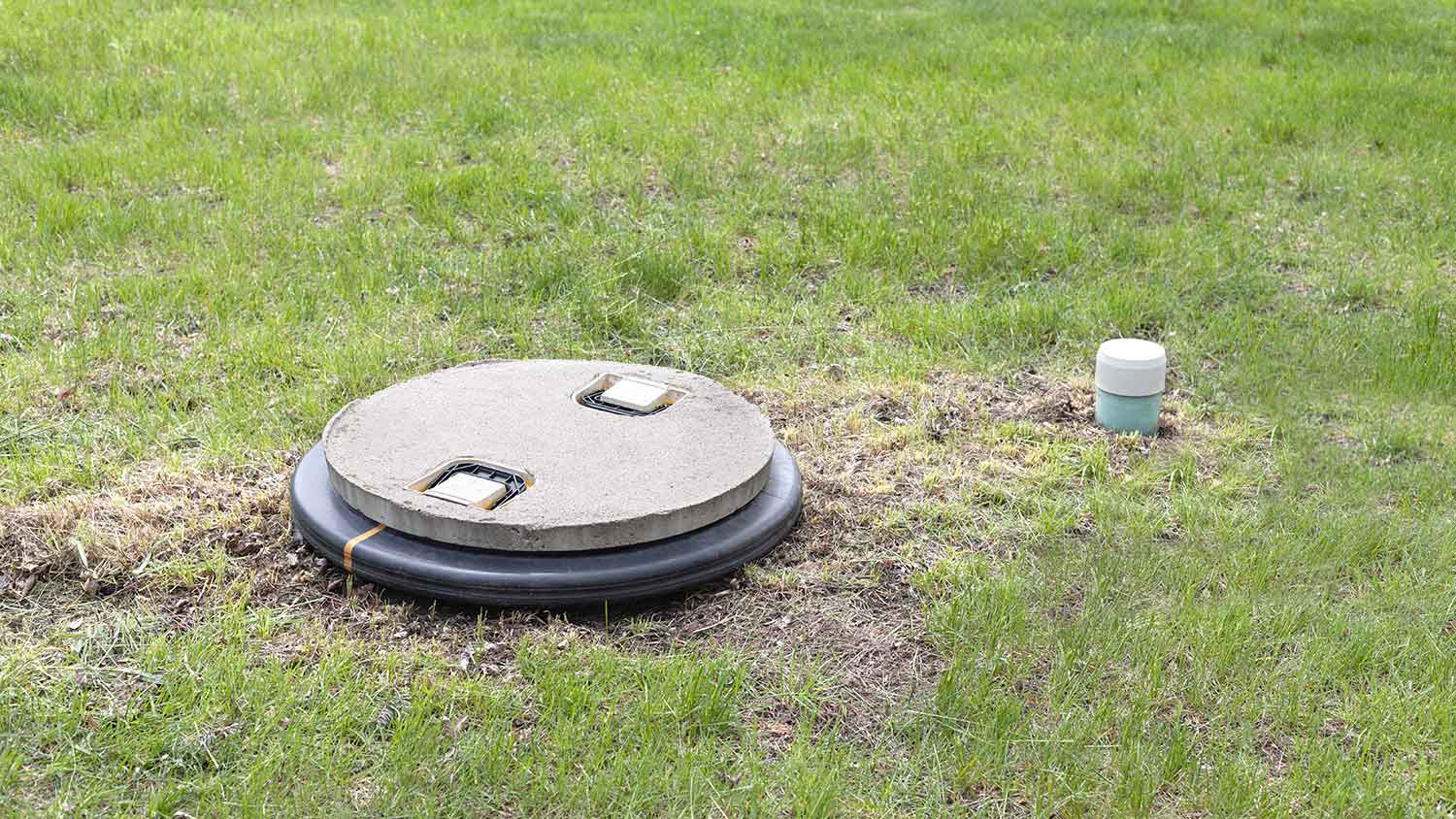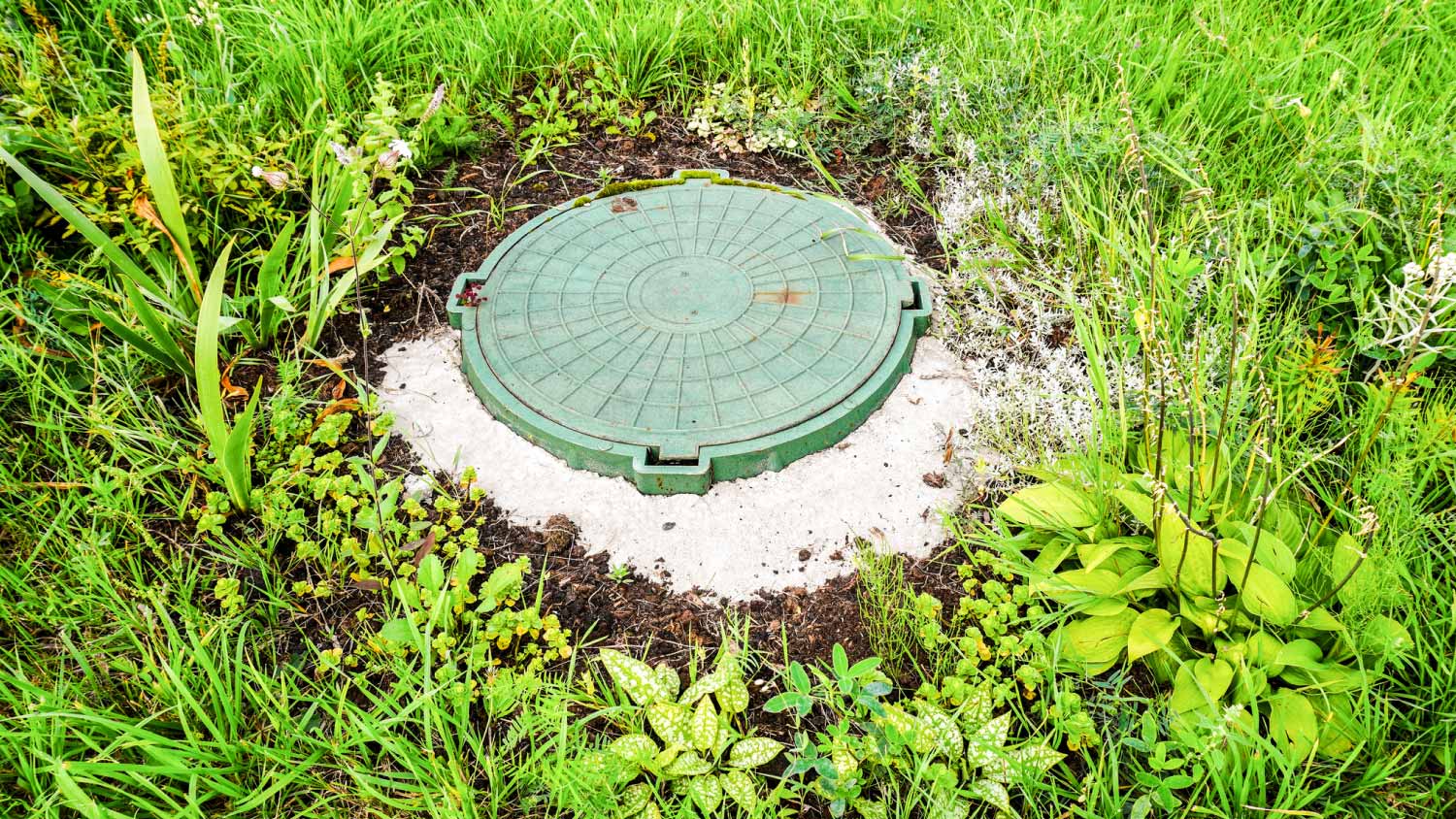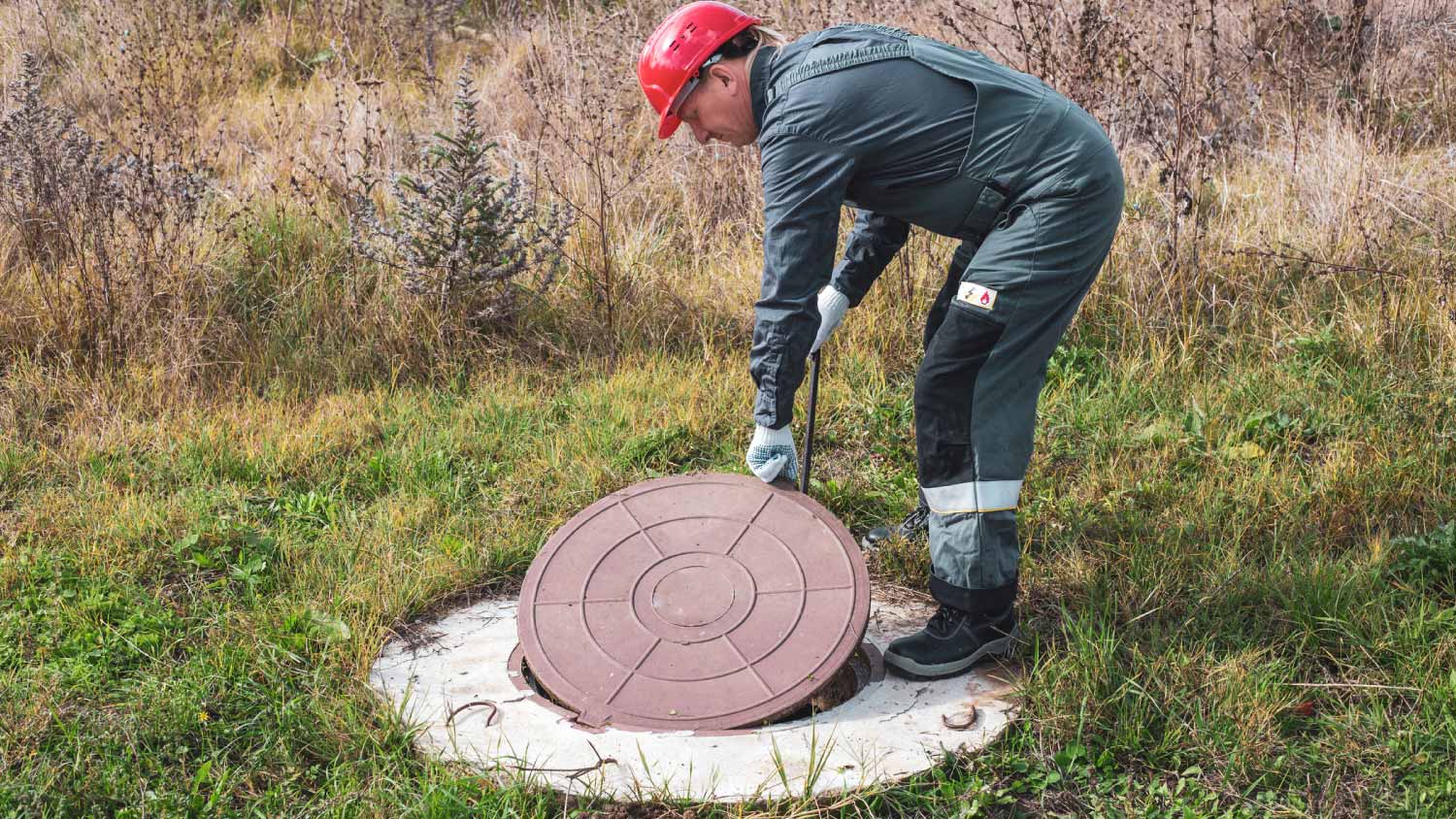
How much does a septic system cost? Explore impacting factors, important add-ons, and how you can save money on septic system installation right here.
Sewer line replacement in Houston, TX costs $3,006 on average, but it can range between $1,441 and $4,766, depending on pipe material.


Sewer line replacement in Houston costs $50 to $300 per linear foot, installed, depending on pipe materials and the complexity of the project.
At $55 to $160 per linear foot, ABS pipes are a preferred mid-range option for Houston homeowners.
Houston plumbing permits for sewer work may include a $30 sanitary sewer tap permit and $30 to $225 for excavation permits.
Sewer line replacement is an essential maintenance project where homeowners can recover 40% to 50% of costs at resale.
The average sewer line replacement costs $3,006 in Houston, Texas, with most homeowners spending $1,441 to $4,766 depending on the pipe material, length, and local soil conditions. Houston's expansive clay soil, known locally as "Houston black" or "gumbo," swells dramatically during the city's heavy rainfall periods and contracts during hot, dry summers. This constant cycle puts tremendous stress on sewer pipes.
Many older homes in Houston, Texas, still have original cast-iron sewer lines that corrode, deteriorate, and leak over time. Whether or not you're dealing with signs of a clogged sewer line, replacing old pipes with modern PVC or ABS is a sound investment in preventing more significant damage to your property. Project costs depend on pipe length and replacement type.
The three most common pipes used for sewer lines are PVC (the most budget-friendly option), ABS (the mid-range option), and copper (the most expensive). Each has its own cost range and preferred use case. In rarer cases, cast iron is used as a sewer pipe material.
Here’s how sewer line replacement costs are affected by pipe material:
| Pipe Material | Average Cost per Linear Foot (Installed) | Pros | Cons |
|---|---|---|---|
| PVC | $50–$120 | Most affordable option, excellent corrosion resistance, ideal for Houston's humid climate | More susceptible to penetration and damage from root encroachment, requires careful installation in shifting clay soil |
| ABS | $55–$160 | Better withstands ground shifts from Houston's expansive soil, flexible during foundation movement | May cost more than PVC, can degrade under prolonged UV exposure before installation |
| Copper | $150–$300 | Naturally antibacterial, resists tree root intrusion | Corrodes in wastewater over time, most expensive option |
The cost of running a new sewer pipe ranges from $50 to $250 per linear foot, with an average price of $150 per linear foot, which includes both materials and labor. Your sewer pipes extend from the house to a street-adjacent city hookup, and the distance depends on your specific neighborhood and property. The further your house is from the hookup, the longer the sewer pipes and the higher the costs.
Of course, the entire length of the pipe may not require replacement, so discuss options with your pro.
A partial replacement will be the most affordable option, with complete replacement and replacing burst pipes ranging from $60 to $250 per linear foot. Understanding how often you should clean your sewer drain can help prevent costly emergency replacements of the full line.
Here’s how costs break down by type of sewer line replacement:
| Replacement Type | Average Cost per Linear Foot |
|---|---|
| Complete | $50–$200 |
| Partial | $50 |
| CIPP lining | $90–$250 |
| Burst pipes | $60–$200 |
Sewer line replacement pros in Houston command premium rates for complex projects where aging infrastructure requires code upgrades. Houston's expansive clay soil is particularly challenging, causing slab leaks and requiring other possible repairs.
Houston contractors typically provide per-project or per-linear-foot quotes rather than quoting hourly rates for labor. Basic sewer line replacement costs $30 to $80 per linear foot in labor alone, pushing up to $200 per linear foot for complex jobs involving restoration and deep trenching. During peak traffic hours or hurricane season, some plumbers charge additional travel fees.
Houston-specific considerations like trenchless sewer line piping options that minimize landscape damage, soil movement from Houston's clay content, which can cause pipe misalignment, and the prevalence of tree root intrusion in the area's mature neighborhoods all play crucial roles in determining total labor costs for this project.
Houston requires several permits for sewer line replacement:
$30 for a sanitary sewer tap permit.
$30 for the application for a permit to construct main or lateral sanitary sewers.
$30 to $225 for excavation permits, depending on project scope.
$86.39, plus an administrative fee—the City of Houston's minimum permit cost.
All sewer work must comply with Houston's adoption of the 2021 Uniform Plumbing Code with local amendments. Contractors handle the entire permitting process, including plan submissions through the city's iPermits system. Confirm your project’s required permits with the Houston Permitting Center.
Houston's expansive clay soil swells significantly when absorbing water and shrinks during dry periods, creating constant ground movement that puts tremendous stress on underground sewer pipes. This can necessitate dewatering, shoring, or specialized excavation, increasing cost and risk.
When replacing your sewer line from house to main, Houston contractors often need to tunnel under existing foundations to access and disconnect damaged pipes. This specialized technique increases labor costs but protects your home's structural integrity. Some neighborhoods near bayous or in FEMA flood zones have additional constraints that lead to higher costs.
Sewer line replacement serves as essential infrastructure maintenance rather than a value-adding home improvement in Houston's real estate market. If your home value is lowered due to a sewer line in disrepair, however, repairing or installing a new line is key to passing home inspections.
A recent replacement or upgrade puts buyers at ease about any sewer questions they may have. The practical return on investment (ROI) is 40% to 50%, preventing price reductions or buyer walkaways. Like most utility replacements, it is not a high-margin cosmetic upgrade. The benefit is reduced sales friction and fewer concessions.
A well-functioning sewer system contributes to a property's overall value and marketability. Regular maintenance helps avoid costly damage and preserves the property's aesthetics.
Home is the most important place on earth, which is why Angi has helped more than 150 million homeowners transform their houses into homes they adore. To help homeowners with their next project, Angi provides readers with the most accurate cost data and upholds strict editorial standards. We survey real Angi customers about their project costs to develop the pricing data you see, so you can make the best decisions for you and your home. We pair this data with research from reputable sources, including the U.S. Bureau of Labor Statistics, academic journals, market studies, and interviews with industry experts—all to ensure our prices reflect real-world projects.
Want to help us improve our cost data? Send us a recent project quote to [email protected]. Quotes and personal information will not be shared publicly.
From average costs to expert advice, get all the answers you need to get your job done.

How much does a septic system cost? Explore impacting factors, important add-ons, and how you can save money on septic system installation right here.

A damaged septic system can leak odors and sewage, so repairs are urgent. Find out how much septic tank repair costs based on repair type, tank size, and more.

Sewer cleanout costs depend on the type of cleanout and how long the line will be. Click here to start planning your budget for this project.

Slow drains, gurgling, and foul smells are signs your septic tank may need to be emptied. Here are questions for your septic system pro on how to maintain it.

How do you know if you have a septic tank? We’re breaking down how septic systems work, what they cost, how to maintain your tank, and who can repair one.

If you’re building a new home or experiencing ongoing plumbing issues, you’ll need a septic tank pro. Review these questions to ask about septic systems.